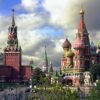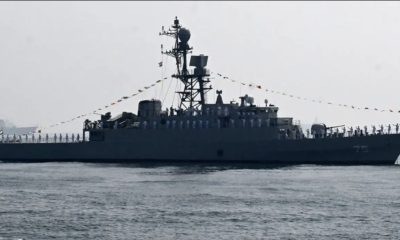War and Peace
Kim Jong Un Sends Another 6,000 North Koreans to Kursk After Reported 6,000 Casualties
North Korea is deepening its controversial alliance with Russia as Kim Jong Un agrees to dispatch another 6,000 personnel to the Kursk region, even after a reported 6,000 North Korean casualties in the same area, according to UK intelligence. Russian Security Council Secretary Sergei Shoigu announced the news on Tuesday, stating that 1,000 sappers — military engineers trained in demolition and explosives — and 5,000 laborers would be sent to rebuild infrastructure and demine the region. Kursk, located near the Russia-Ukraine border, was a flashpoint during Ukraine’s surprise 2024 counteroffensive, which seized an estimated 500 square miles before being repelled.
Sergei Shoigu’s comments come after his second visit to Pyongyang in just two weeks, signaling a rapidly intensifying relationship between Moscow and Pyongyang that goes far beyond diplomacy. Russia is increasingly depending on North Korean manpower and arms, while Kim benefits from financial incentives, military tech access, and geopolitical relevance.
6,000 Troops Lost, But More On the Way
While North Korean state media did not specify troop deployment numbers, it acknowledged that Kim Jong Un had “accepted the relevant plans” during his recent meeting with Shoigu. Intelligence updates from the UK Defense Ministry and Ukrainian sources estimate that between 3,800 and 6,000 North Korean soldiers were killed or wounded during the intense battle for Kursk, which ended earlier this year when Russian forces retook most of the region — with North Korean support.
“This is Kim monetizing manpower,” said Soo Kim, a former CIA analyst. “In the short term, it’s cash. In the long run, it’s military knowledge and regional leverage.”
Military Support Becomes a Business Model
Back in 2024, Pyongyang reportedly deployed 12,000 troops to support Russia’s operations in Ukraine. Ukrainian intelligence claimed North Korea was paid up to $2,000 per soldier. Sergei Shoigu, once Russia’s Defense Minister, now appears to be overseeing a broader, strategic effort to entrench North Korean involvement — not just in combat, but also in post-conflict reconstruction.
Moscow and Pyongyang are reportedly planning war memorials to honor fallen North Korean soldiers, with Shoigu saying their sacrifice would be “perpetuated” by both governments.
Despite the scale of the losses, there’s no indication that North Korea is reconsidering its commitment. On the contrary, the latest move may reflect Pyongyang’s attempt to embed itself deeper into Russian geopolitical and economic structures, especially as global sanctions continue to isolate the regime.
Global Reactions and Escalating Tensions
South Korea’s foreign ministry has responded cautiously, stating that it is “closely monitoring developments” and consulting with its allies. Meanwhile, Western observers fear that this deepening Russia-North Korea military axis could evolve into a broader challenge to NATO-aligned powers.
As the war in Ukraine drags into its third year, the cost in human life — and the willingness of regimes like North Korea to trade blood for influence — continues to reshape the global balance of power.










































